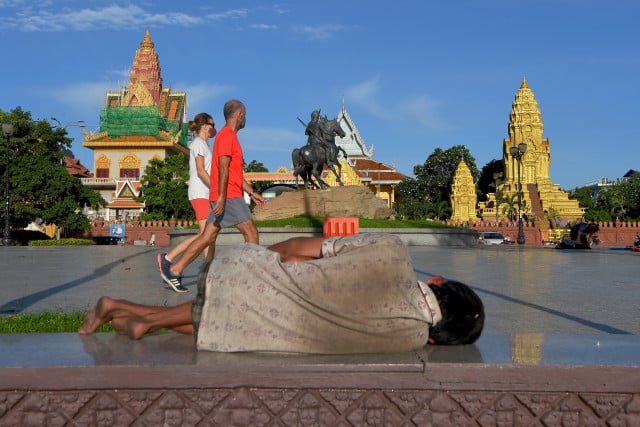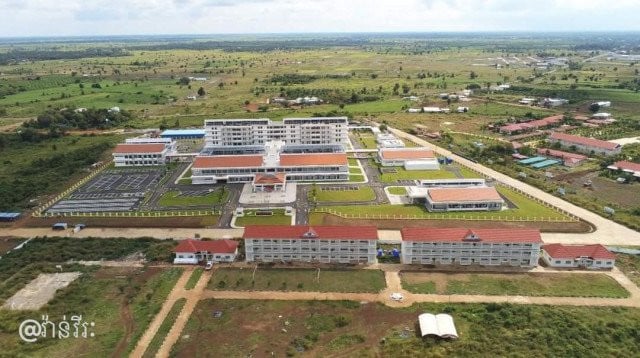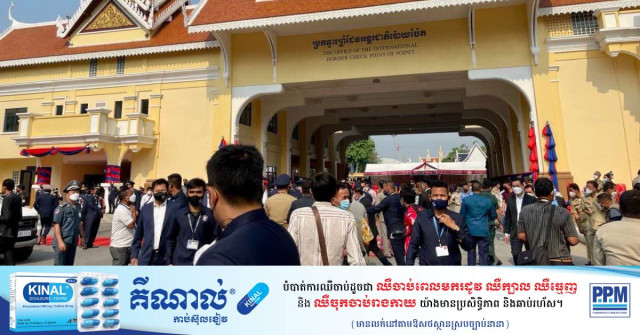The Ministry of Health Warns of the Effects of COVID-19 on Mental Health

- Sao Phal Niseiy
- July 26, 2020 9:59 AM
This has raised the issue of whether the country has the resources to help those affected
PHNOM PENH—With the Novel Coronavirus (COVID-19) taking its toll on people in the country, disrupting their lives and affecting their plans for the future, the Cambodian government recently advised people on ways to emotionally cope.
On July 20, the Ministry of Health issued guidelines on personal mental healthcare to help people deal with potential problems including anxiety, depression and trauma.
Focusing on specific groups such as children and teenagers as well as people in general, the guidelines attached importance to self-care, reminding each and everyone to be mindful of mental health and be aware of how to deal with it on a personal level during these despondent times. The ministry also encouraged people to seek counseling and treatment services if a person’s condition becomes serious.
The move demonstrated the government’s concern over the possible emergence of a mental health crisis as hundreds of thousands of Cambodians have encountered hardship over the past months due to the pandemic.
COVID-19 has already wrecked social and economic havoc in Cambodia as the country’s economic growth is projected to contract 1.9 percent. More than 150,000 Cambodians have also lost their jobs and more than 100,000 migrant workers returned home mainly from Thailand, finding themselves stuck in the country without knowing when they will be able to get back to work.
Meanwhile, students have been struggling to keep up with their studies through virtual learning as schools and universities remained closed.
The current situation caused by the pandemic is such that, as a mental health professional pointed out, government intervention is needed to avoid a mental-health crisis.
“I think the guidelines [issued by the Cambodian government] are important as many other developed countries have also stepped up their efforts to provide guidelines on mental care support to their people,” Hoeur Sethul, president of the Cambodia Association for Counsellors and Psychologists, said, referring to the United Kingdom’s mental health guidelines at family, community and expert levels.
Cambodia’s ability to encourage greater role of family and community in offering mental support is crucial and doable in the current circumstances, he said.
“I believe this can be done at family and community levels in which family members or community members can provide each other’s support and take care of each other as well as learn to observe if anyone in the community or family encounters mental disorder,” Sethul said.
However, what is of great concern, he said, is whether mental care services will be sufficiently provided if the condition goes beyond family’s and community’s support capacity, taking into account Cambodia’s limited investment in the mental-health sector as well as its small community of mental-health professionals.
“I am still not sure about how much we can do when it comes to mental health service provision,” Sethul stressed.
Investment in the mental healthcare system desperately needed
The United Nations Secretary General Antonio Guterres last May called upon states across the globe to pay attention to dealing with psychological illness, which can embolden global spike in suicides and drug abuse due to COVID-19.
Guterres highlighted that, for decades, many countries have been negligent, leaving mental health services underinvested.
Cambodia is not different, having been described as having a weak healthcare system with health expenditure per capita in 2017 being around $82 per person or $1,200 million in total, according to the World Bank. And its investment in mental health is also minor, representing less than 1 percent of total health expense, according to the 2016 report of the World Health Organization.
When asked whether a public health crisis such as COVID-19 could be a tipping point for the government to begin allocating more financial resources in psychological wellness as mental-health consequences will likely be enormous, Sethul responded it should have been focused on long ago.
“I believe it is not just now,” he said. “I raised the issue of snowballing financial support for mental health sector 10 years ago because [we understand] it is really critical.”
However, Sethul said, the value and importance of investment in mental health is generally overlooked due to the fact that people are unable to visualize positive outcomes generated by mental health care and programs.
“Unlike mathematics, the investment [in mental well-being] doesn’t translate into a tangible result,” he said. “Sometimes, only experts can see how huge the impact of mental health crisis can have on a society.
“With the experience we have during COVID-19, we must be prepared,” he said. “Therefore, I really encourage the government to begin the work now. Even though we should have done it long time ago, doing it now is not too late.”
Too few mental health experts?
Support from the government will have far-reaching effect for promoting mental-health care and generating more professionals in the field, providing the country with the human resources required to intervene and assist when needs be, Sethul said.
“Based on my experience, even psychiatrists…their number remains small compared to our entire population,” he said. “We really have a very small number of psychologists and, on top of that, their quality is still limited.” Sethul estimates that there have been less than 100 people who hold a master’s degree in psychology and less than 10 people who hold a Doctor of Psychology degree.
“With the government’s endorsement and support, I really believe we can do this work effectively and will ultimately have enough human resources to help our people in the mental health sector,” Sethul said.
Having worked in the mental health field for more than 20 years, Sethul believes that, if the government is willing to garner support to build a better mental healthcare system in the country, other stakeholders including private-service providers as well as non-governmental organizations will be resolutely happy to assist.
“[T]here is a lot of work that can be carried out together with the government, for example in terms of gathering resources and building qualified human capital in the mental health sector,” he said.
Sethul explained that collaborative work can include mapping out mental health guidelines in accordance with international standards as well as developing mental health policy and legislation.
Currently, Cambodia doesn’t have law on mental health as well as “national clinical guidelines for diagnosis and treatment of mental disorders”—which are crucial to, among other issues, protect those having or at risk of mental health issues.
Contacted on July 21 regarding this and whether the Cambodian government is considering further steps to deal with mental health in view of the pandemic, Health Ministry spokesperson Or Vandine has not yet responded. However, she provides the media and the public with daily reports on COVID-19 in the country.















